
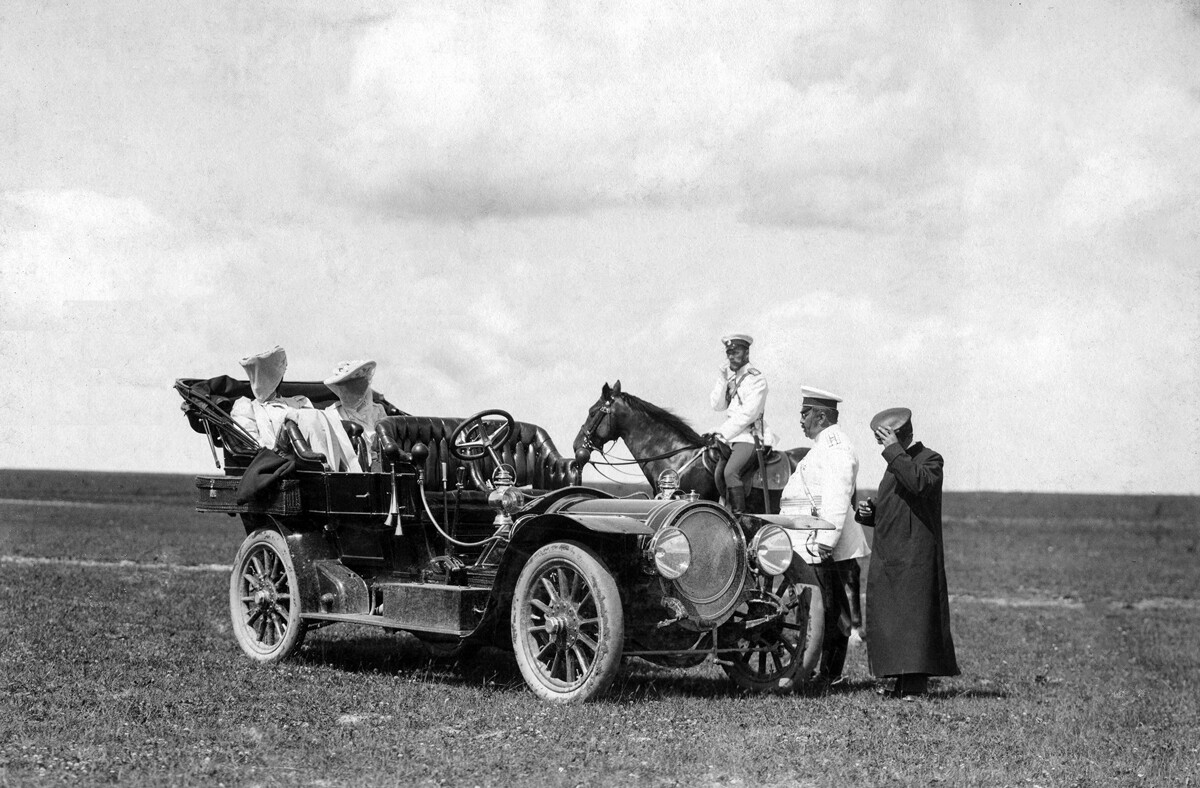
Nicholas II was one of the first members of the Imperial Family to buy a car. When he went for a test drive in Prince Vladimir Orlov's Delaunay-Belleville in 1904, the emperor quickly realized the potential of the automobile and ordered two or threemore cars to be purchased. Very quickly, the Imperial Garage had four Delaunay-Bellevilles, as well as Mercedes, Renault, Peugeot and Rolls-Royce models.
The love of speed turned out to be contagious and some of the Romanovs even turned their hobbies into a proper sport. For example, Grand Duke Kirill Vladimirovich traveled all over Europe by car. He was a patron of the ‘Baltic Automobile and Aero Club’ and regularly participated in car races. Together with his wife, he set off in his Panhard ‘Levassor’ on the week-long Russian-Swedish ‘Viktoria Fahrt’ motor rally, which included racing uphill and a driving skills competition. And he won!
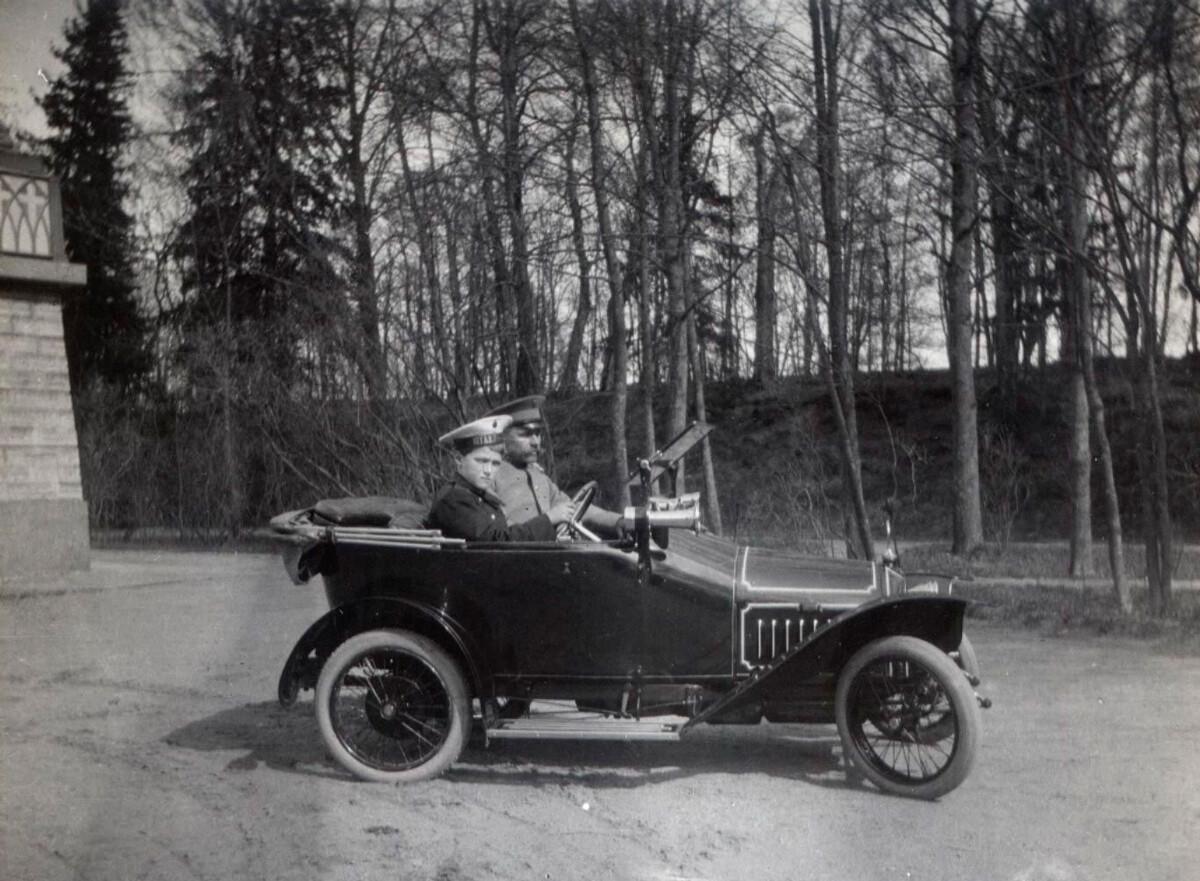
Another avid car enthusiast was Grand Duke Sergei Mikhailovch, patron of the St. Petersburg Automobile Club. And Tsesarevich Alexei was the youngest driver in Russia: He drove around Alexander Park in a Peugeot ‘Bébé’.
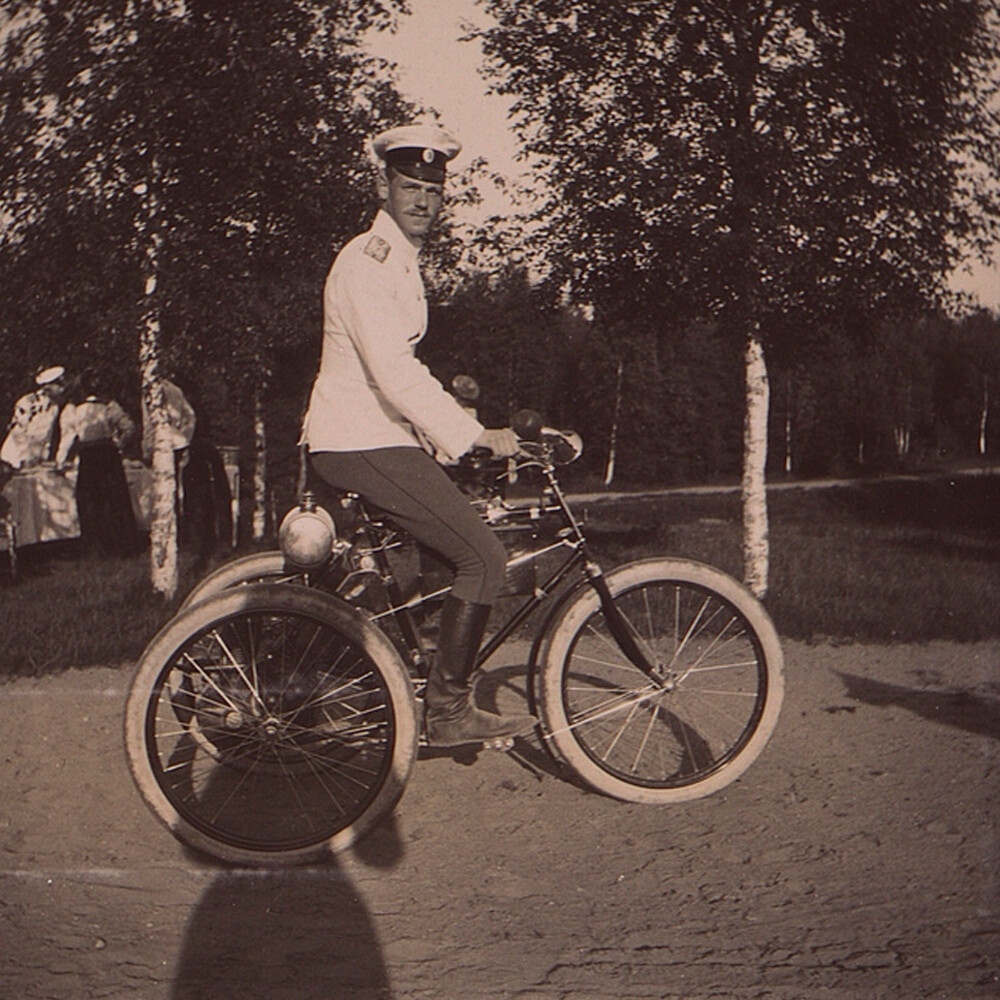
Yet another member of the House of Romanov - Grand Duke Mikhail Alexandrovich - was not averse to driving, either. True, he preferred tricycles - which were like gasoline-powered bicycles, but with three wheels. His first De Dion-Bouton was a New Year present from Nicholas II and Empress Alexandra Feodorovna. After that, he would buy himself a new model every year. He used to take his sisters and brothers out for a ride on them and, on occasion, members of the government - for instance, Finance Minister Sergei Witte and even the emperor. Nicholas II was impressed by the ride at a crazy speed of about 64 km/h(40 mph)!
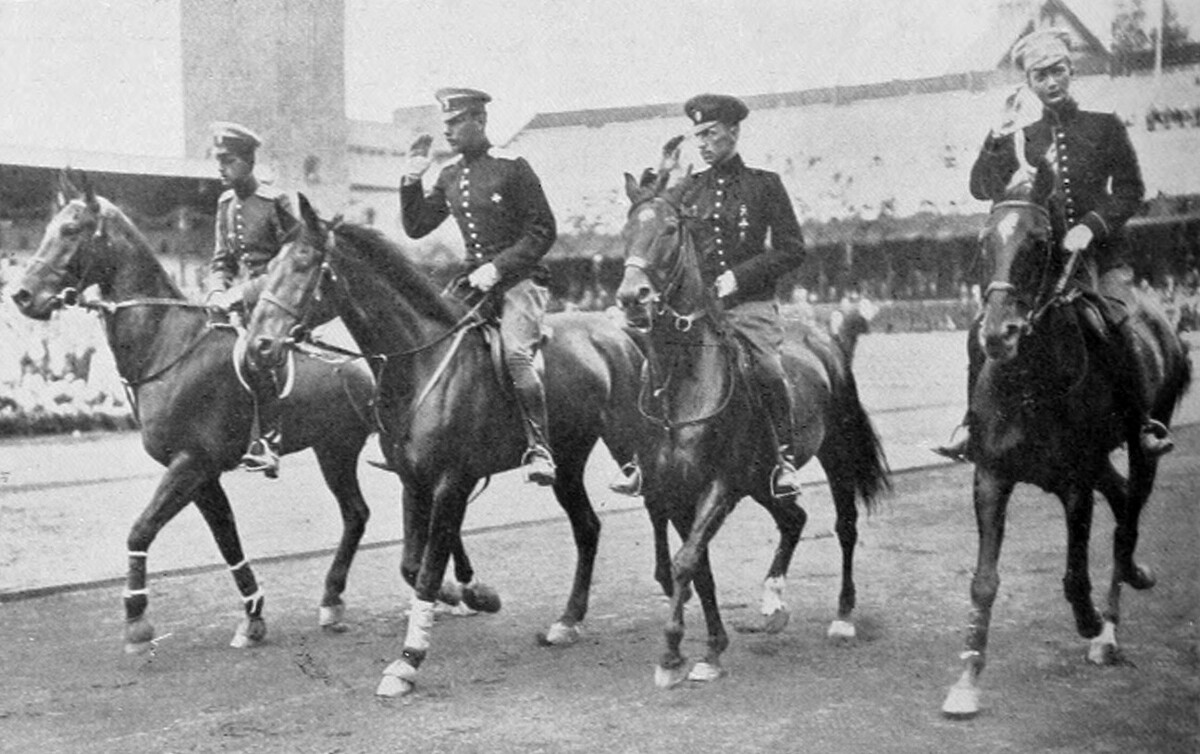
In 1912, Stockholm hosted the Olympic Games. The national team of the Russian Empire was led by Grand Duke Dmitry Pavlovich. Moreover, he was not just a "media figurehead", but also a good athlete in his own right: An excellent rider, the grandson of Alexander II went to Sweden to win in equestrian sports.

The results were disappointingly modest: fifth team place in show jumping and ninth place in individual competition. But, there were also positive consequences: The Grand Duke came up with the idea of holding an All-Russian Olympic Games. The first such Olympiad took place in 1913 in Kiev and the subsequent one, a year later, in Riga.
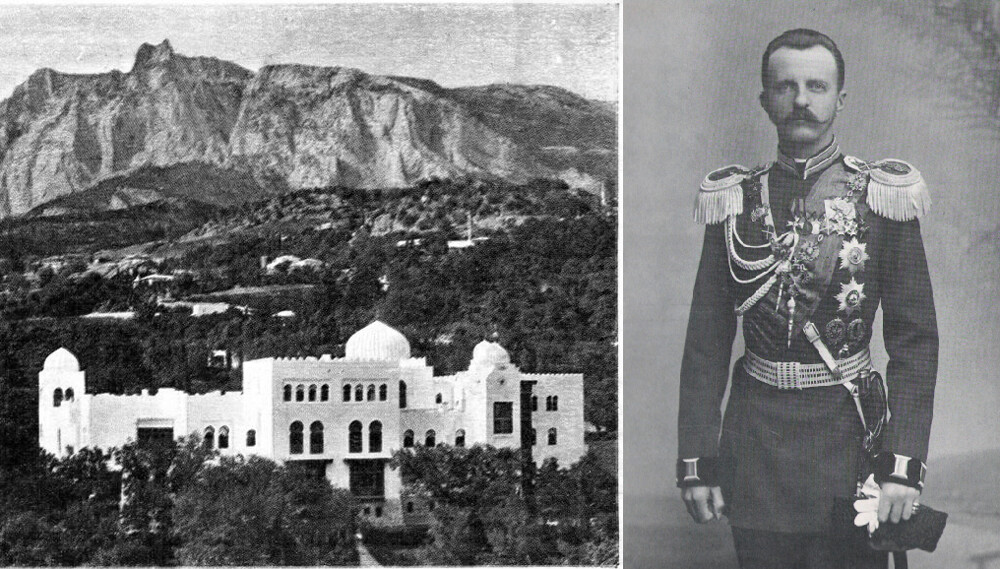
Nicholas I's grandson, Grand Duke Peter Nikolaevich, left military service, because of tuberculosis. But, he found an outlet for his energies in architecture. He designed monuments and churches and even built a palace of his dreams. Because of his lung ailment, he lived in France for lengthy periods of time and then decided to settle in the similarly congenial climate of Crimea. This was how the Moorish Revival palace of Dulber in the settlement of Koreiz came to be built - it was designed by Nikolai Krasnov on the basis of the Grand Duke's preliminary drawings. After the revolution, the Romanovs who were in the Crimea gathered at the palace, which became a safe refuge against the supporters of the Yalta Soviet who wanted to do away with them.

Grand Duke Alexander Mikhailovich served in the navy; yet his interests lay not just in the sea, but also the air. He became one of the pioneers of aviation in Russia: He founded a flying school in Sevastopol to train military pilots, purchased planes in France with his own money and organized training secondments to enable naval officers to learn airmanship.
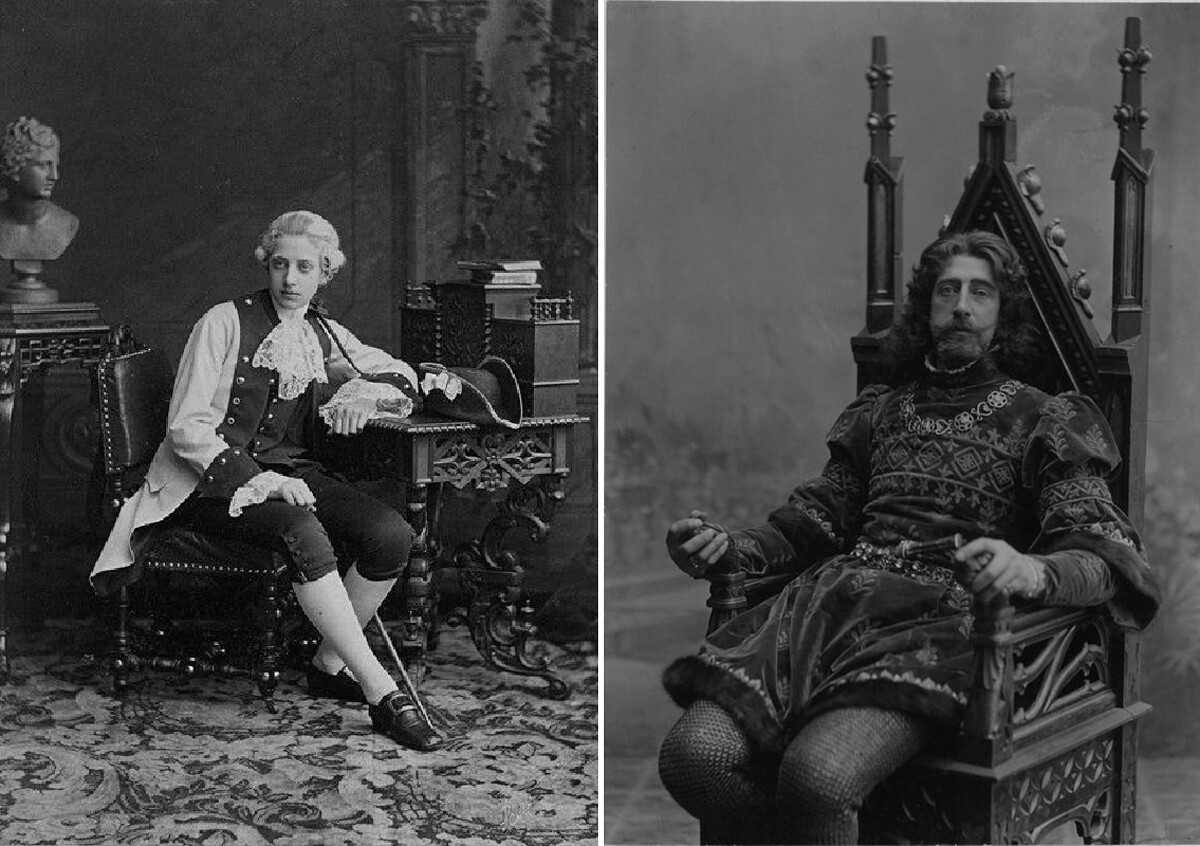
A soldier by profession and poet and dramatist by inclination, Grand Duke Konstantin Konstantinovich was on good terms with Afanasy Fet and Ivan Goncharov and translated Shakespeare's 'Hamlet' and 'Henry VI' and Goethe's 'Iphigenia in Tauris'. Tchaikovsky and Rakhmaninoff composed art songs to his poetry, while the song 'The poor fellow died in the military hospital’was a hit in its time.
Nicholas I's grandson, meanwhile, was an excellent actor: One of his star roles was as Joseph of Arimathea in his own playtitled 'Tsar of Judea', which dealt with the events of Holy Week. When Bulgakov was working on 'The Master and Margarita', he turned to the Grand Duke's play for inspiration.
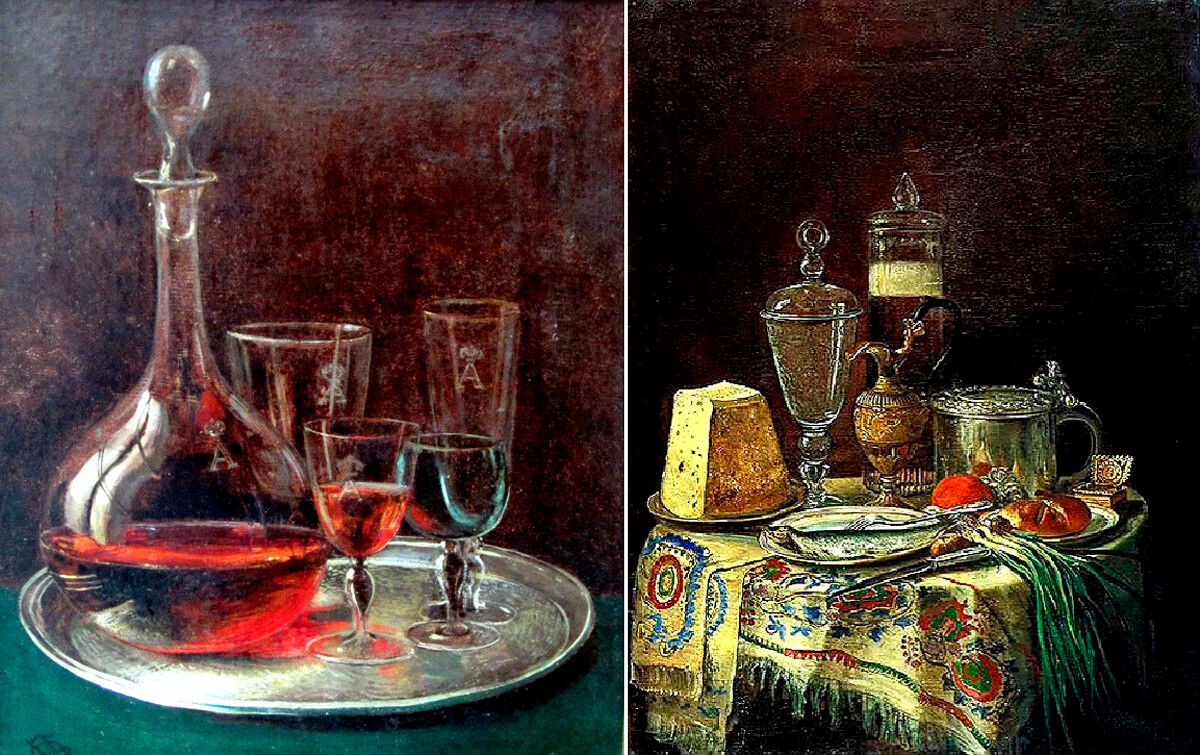
Emperor Nicholas I was not a bad watercolorist: He made his own engravings and then painted them in. He was also good at genre subjects: The observant monarch committed his impressions and scenes witnessed at balls and receptions to paper. And he also designed military uniforms.
Alexander III also liked painting. As heir to the throne, he studied with the artist Alexei Bogolyubov. Even after ascending the throne, he did not neglect his hobby and found time to work on marine views. Another of Bogolyubov's pupils was Empress Maria Feodorovna, who preferred watercolor. She painted small, delicate and meticulously worked studies.
Alexander III and Empress Maria Feodorovna's hobby was inherited by their son, Nicholas II. He was not just a painter of landscapes, but also painstakingly sketched anything he found interesting.
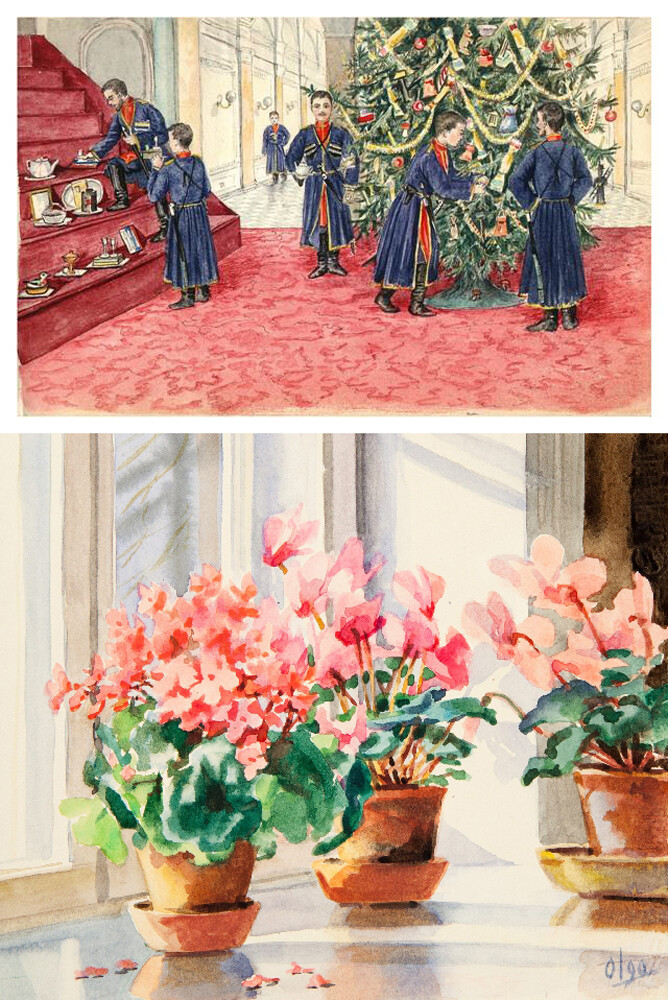
Nicholas II's sister, Grand Duchess Olga Alexandrovna, studied painting with Carl Lemoch, Vladimir Makovsky, Stanislav Zhukovsky and Sergei Vinogradov. Having fled to Denmark after the revolution, she devoted much of her time to painting. Exhibitions of her work were held in Paris, London and Berlin and she managed to turn her hobby into a source of income. Grand Duchess Olga Alexandrovna painted more than 2,000 watercolor paintings and oils in her lifetime. She also painted icons, but she never sold them, only giving them away as presents.
Dear readers,
Our website and social media accounts are under threat of being restricted or banned, due to the current circumstances. So, to keep up with our latest content, simply do the following:
If using any of Russia Beyond's content, partly or in full, always provide an active hyperlink to the original material.
Subscribe
to our newsletter!
Get the week's best stories straight to your inbox